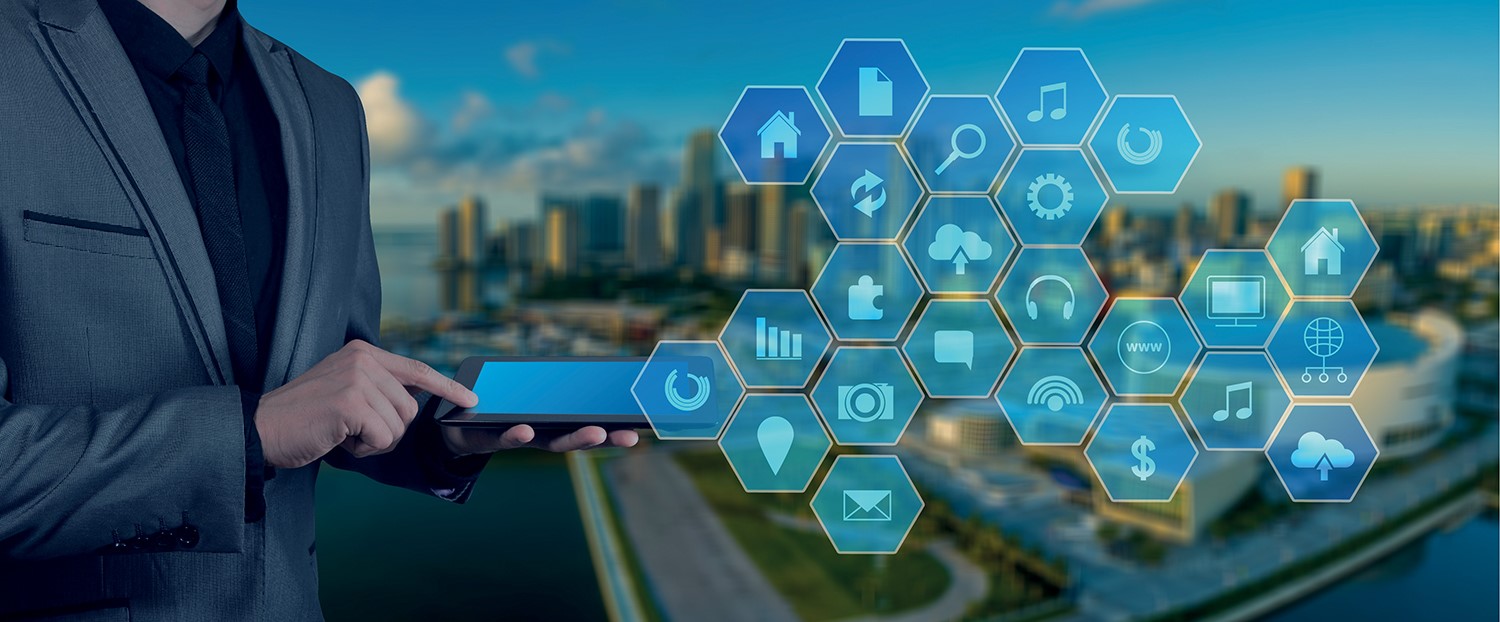
Photo: gsa-header
How space technologies are driving the future of smart cities
04 October 2018
By Carlo des Dorides, Executive Director, European GNSS Agency (GSA)
There are multiple visions for how cities can best respond to the challenges of climate change and foster broader sustainability, yet they all share a common goal of improving the quality of life for inhabitants and respecting the environment.
Smart cities also share a need for Information and Communication Technologies (ICT), in order to increase operational efficiency, improve the quality of such key public services as transport, and share goods and information with others. Significant progress in intelligent mobility is already leading to more competitive transportation services–all while minimising environmental and social impacts.
Behind many of these ICT solutions are space technologies, including a new generation of Global Satellite Navigation Systems (GNSS) such as Galileo. Thanks to its improved positioning accuracy, seamless confidence in urban and indoor environments and mitigation of location-based cyber-security threats, GNSS offers an agile and low-cost solution to many of the challenges that cities face today.
In the past, a general lack of availability of satellite signals within a city meant users would frequently experience positioning errors and incorrect location. However, this is no longer a problem. With Galileo now operational for two years, cities and users alike are taking advantage of the better positioning it offers in such harsh environments as urban canyons. Galileo also allows for a faster positioning and provides a new level of robustness against spoofing. Along with being fully compatible with other GNSS systems (such as GPS), Galileo can also be easily integrated with other sensors and infrastructures, making it a key enabler for new concepts like the Internet of Things (IoT).
As satellite navigation technology reaches a high level of maturity, it is being integrated across a broad range of applications. Of specific interest to cities are the many personal location devices (smartphones, watches, tablets, and others) that are now widely used with a range of mobility services. However, challenges remain. For instance, the utilisation of GNSS signals is affected by liability and payment concerns related to the reliability of the positioning and timing (like parking, last-mile delivery, vehicle sharing, emergency response, etc).
A fundamental technology for autonomous driving
With connected cars and autonomous driving applications taking off, we are entering a new era in which location performance parameters will become more and more stringent. GNSS is the fundamental technology for providing absolute positioning globally and accurate timing information for all levels of conditional, high and full automation.
In this sense, Galileo offers unique advantages–and many leading vehicle manufacturers are already testing it for use with the first generation of autonomous cars set to hit the market in 2022. These vehicles will operate in a cooperative environment, with ubiquitous communication with road infrastructure. This interaction, called Cooperative Intelligent Transport Systems (C-ITS), allows road users and traffic managers to share information and use it to coordinate their actions. This cooperative element is expected to significantly improve road safety, traffic efficiency and the overall comfort of driving by helping drivers make the right decisions and easily adapt to current traffic conditions.
Serving citizens: Mobility as a Service
Shared mobility services are growing exponentially every year. Mobility as a Service (MaaS) aims to bring a wide variety of transport services through a single front-end app. Services accessed by citizens through mobile apps aggregate different transport modes and are increasingly commonplace in urban life.
Although MaaS is still in an early stage of development, many cities around the world are already upgrading their positioning technology to take advantage of it. For example, Prague recently required new public buses to be equipped with a Galileo-enabled telematic box. This addition gives users access to real-time information on a bus’s exact location. Furthermore, by precisely tracking each bus, management gains complete control over the entire fleet, which significantly reduces costs, improves safety and boosts productivity–all of which translates into a better service for passengers and citizens.
In Barcelona, Galileo has been successfully tested for use with city police vehicles. Barcelona was also the first city to utilise Galileo´s precise location in a motorcycle and bicycle sharing pilot programme. Users really noticed how easy it was to find a free vehicle, even in the most crowded areas!
Turning to Asia, Singapore’s next generation electronic road pricing system uses GNSS-based positioning to charge motorists in proportion to the distance travelled along a congested road. This same system may be used to provide drivers with official real-time traffic information to better plan their routes, along with the ability to electronically pay their parking fees.
Space: the long-term vision
There is a strong case for investing in space technologies, thanks to their adaptability and low investment, space-enabled applications are poised to play a fundamental role in the urban infrastructures of tomorrow. From public transport to vehicle sharing, space-based solutions benefit cities and citizens, making it the sustainable solution for smart cities everywhere.
For cities looking to learn more about the benefits of Galileo, the European GNSS Agency (GSA) is currently developing small-scale pilots involving a larger number of transport operators and public authorities, in cooperation with the International Association of Public Transport (UITP).
To learn more, contact the European GNSS Agency: market@gsa.europa.eu
Brought to you by:









